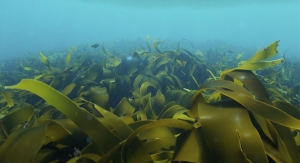01.08.14
Natural algae astaxanthin manufacturers Fuji Chemical Industry Co Ltd., Toyama, Japan, Israel-based Algatechnologies Ltd., and Cyanotech Corporation, Kailua Kona, HI, have joined to form the Natural Algae Astaxanthin Association (NAXA). The new trade organization is focused on educating the public and dietary supplement industry about the health benefits of natural astaxanthin and the differences between astaxanthin sources.
In discussing the difference between natural and synthetic astaxanthin, Kazuyuki Miyakawa, chief scientific advisor to Fuji explained, “A new research article published last month in NutraFoods, a peer-reviewed technical journal, points out that in different antioxidant tests … natural algae astaxanthin proved to be a minimum of 20X to over 50X stronger as an antioxidant than synthetic astaxanthin.”
In vitro studies conducted at Creighton University and Brunswick Laboratories examined natural astaxanthin from Haematococcus pluvialismicroalgae (N-AX) against several other natural antioxidants such as vitamin C, vitamin E, beta-carotene, pine bark extract, as well as synthetic astaxanthin (S-AX). N-AX proved to be 14–65 times more potent at eliminating free radicals when compared directly against these other antioxidants. Further, N-AX was approximately 20 times more potent at free radical elimination than S-AX.
A key focus of the newly formed NAXA is bringing research such as this to light, as well as informing the public about potential concerns with using synthetic alternatives. “If synthetic astaxanthin has only 2% - 5% of the antioxidant power of natural algae astaxanthin,” asked Mr. Miyakawa, “how can it possibly work as well for heart health, brain health, joint health, skin health, and the other areas in which we have established solid evidence from human clinical trials on natural algae astaxanthin?”
For more information on the debate between natural vs. synthetic nutraceutical ingredients, NAXA will be hosting a seminar on the subject at this year’s Natural Products Expo West in Anaheim, CA on Friday March 7 at 3:00 PM.
In discussing the difference between natural and synthetic astaxanthin, Kazuyuki Miyakawa, chief scientific advisor to Fuji explained, “A new research article published last month in NutraFoods, a peer-reviewed technical journal, points out that in different antioxidant tests … natural algae astaxanthin proved to be a minimum of 20X to over 50X stronger as an antioxidant than synthetic astaxanthin.”
In vitro studies conducted at Creighton University and Brunswick Laboratories examined natural astaxanthin from Haematococcus pluvialismicroalgae (N-AX) against several other natural antioxidants such as vitamin C, vitamin E, beta-carotene, pine bark extract, as well as synthetic astaxanthin (S-AX). N-AX proved to be 14–65 times more potent at eliminating free radicals when compared directly against these other antioxidants. Further, N-AX was approximately 20 times more potent at free radical elimination than S-AX.
A key focus of the newly formed NAXA is bringing research such as this to light, as well as informing the public about potential concerns with using synthetic alternatives. “If synthetic astaxanthin has only 2% - 5% of the antioxidant power of natural algae astaxanthin,” asked Mr. Miyakawa, “how can it possibly work as well for heart health, brain health, joint health, skin health, and the other areas in which we have established solid evidence from human clinical trials on natural algae astaxanthin?”
For more information on the debate between natural vs. synthetic nutraceutical ingredients, NAXA will be hosting a seminar on the subject at this year’s Natural Products Expo West in Anaheim, CA on Friday March 7 at 3:00 PM.


















